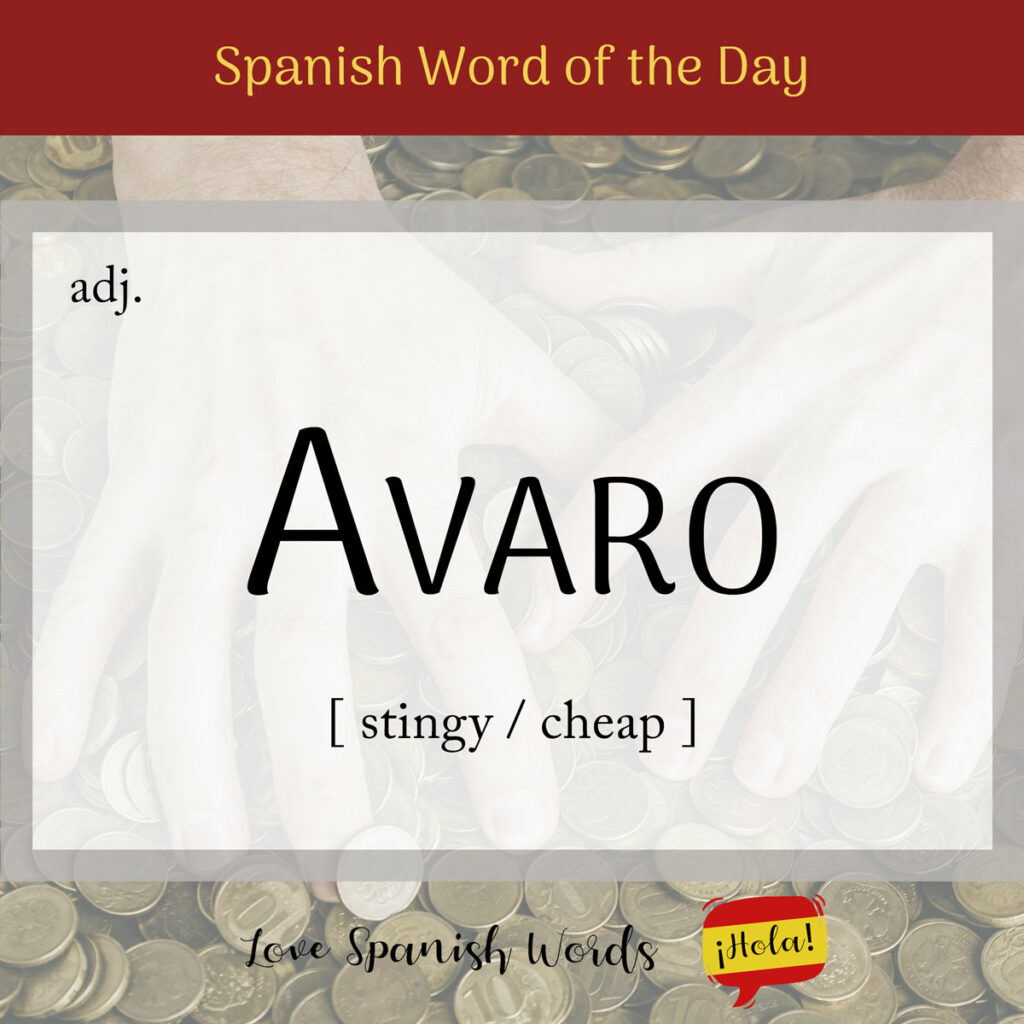Is there someone in your life who would complain about paying even a dollar more when you divides la cuenta (split the bill)? If so, you could easily call him avaro, a word with many possible English translations including stingy, cheap, avaricious, greedy, grasping, miserly, penny-pinching, or tight-fisted. In short, it describes someone who is reluctant to give or spend their wealth.
Latin American Pronunciation
European Pronunciation

Avaro is an adjective, and for this reason, the ending changes according to the gender or number of the subject in question. Avara is the feminine form, while avaros and avaras are their respective plural forms.
The word was borrowed from Latin avārus, which comes from the root of aveō (to long for, to crave) with the fossilised suffix -ārus.
¿Por qué eres tan avaro?
Why are you so stingy?
A common synonym for avaro is tacaño, though the latter specifically refers to an unwillingness to spend money. Avaro, on the other hand, can also be used figuratively when you use little of something, or do something sparingly. For example:
- ser avaro de alabanzas = to be sparing in one’s praises
- ser avaro de palabras = to be a person of few words
You may also encounter the synonyms codicioso and avaricioso, both of which describe excessive greed, with a focus on wealth and material possessions.
Scrooge es conocido como uno de los personajes más avaros de la literatura.
Scrooge is known as one of literature’s most stingy characters.
Avaro can also function as a noun with the meaning of miser, money-grubber, Scrooge, skinflint, tightwad, or cheapskate.
Es un avaro con su dinero.
He is a miser with his money.

If you are looking for a more idiomatic expression, you can try using ¡Que codo más duro!, which translates to What a cheapskate! in English. Codo duro literally means hard elbow in Spanish, but in this context, it is used figuratively to refer to someone who is tight with their money.

